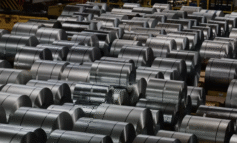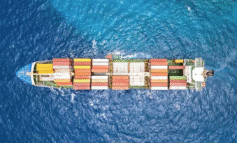China is home to the largest port system in the world, certainly in terms of cargo volumes. Chinese ports are subject to a unique port governance framework which differs from the traditional landlord port system found in most key ports around the world. Port governance in China is the theme of a recent port study co-authored by PortEconomics co-director Theo Notteboom and Yang Zhongzhen.
The global and domestic economic slowdown and structural changes in the economic base have affected volumes and freight traffic growth in Chinese ports. Fears for port capacity shortages have made room for over- capacity. New geo-economic policies such as the ‘Go West’ strategy and the ‘One Belt One Road’ (OBOR) initiative, the implementation of modern corporate governance principles and the establishment of Free Trade Zones (FTZs) are affecting the Chinese container seaport system.
The above factors have triggered a number of strategic and managerial implications on Chinese ports: (a) an increased focus on seaport integration and co-operation, (b) a strong orientation on hinterland development through corridors and dry ports, (c) a two-way opening up of the seaport sector by combining initiatives to attract foreign investments and trade to Chinese ports with an internationalisation of Chinese port-related companies. Theo and Yang demonstrate that
…changes have triggered processes of institutional layering in port governance without breaking out of the development path initiated by the Port Law of 2004 and related policy initiatives.
The study is part of a special issue of the academic journal Research in Transportation Business and Management (RTBM) dedicated to port governance and port reform around the world – edited by Mary Brooks, Kevin Cullinane and Thanos Pallis.
Anyone interested to access the port study, might just click the following, link until May 01, 2017, to reach the final version of the article on ScienceDirect for free: https://authors.elsevier.com/a/1Ui6w7sdbMeOqY












